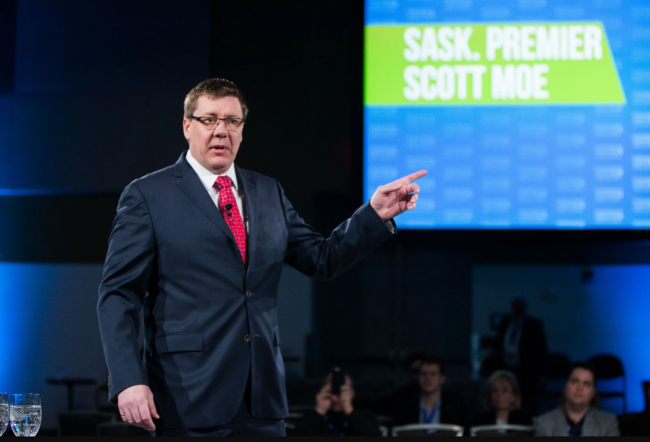Articles Menu

Jan. 20, 2023
All Canadians should be concerned about the Saskatchewan government’s Bill 88. Known as the Saskatchewan First Act, it has already passed second reading with unanimous consent. It sets dangerous precedents and has serious implications for climate change policy in Canada. After it passes third reading, the federal government should send it to the Supreme Court of Canada for a ruling on its constitutionality.
For several years now, the Saskatchewan government led by Premier Scott Moe and his Saskatchewan Party MLAs has been opposing a wide range of federal government measures aimed at reducing greenhouse gas emissions. It led the way in taking the federal government to court over putting a price on greenhouse gas pollution and lost at the Supreme Court. It has paid little attention to the benefits of energy conservation and ranks lowest in Canada among all provincial governments on the Canadian Energy Efficiency Scorecard.
Now the Saskatchewan First Act appears to be the latest vehicle in the Moe government’s fight with Ottawa over climate policy. Section 3 of the act states the provincial government is to have “exclusive jurisdiction” over regulating greenhouse gas emissions from Saskatchewan’s oil and gas industry, its electricity generation sector, its forestry industry and its non-renewable natural resource sector.
In the oil and gas industry, for example, the Saskatchewan First Act could potentially set the stage for the provincial government rejecting federal regulations that will aim to cut greenhouse gas emissions 42 per cent by 2030.
Moe’s government has argued this target is too ambitious and would interfere with its plans to expand oil production. It could seek instead to set its own standards, and they would inevitably be weaker.
In the electricity generation sector, the act could potentially be used to reject federal regulations that require all conventional coal-fired power stations to be shut down by 2030.
In sharp contrast to Alberta, where coal-fired power has been rapidly phased out, Saskatchewan has made little progress. The Saskatchewan First Act could also potentially be used to block federal Clean Electricity Regulations being applied in Saskatchewan.
These regulations are intended to drive progress towards a net-zero electricity grid in Canada by 2035, but the Saskatchewan government has spoken out strongly against them.
No provincial government should have exclusive jurisdiction over regulating greenhouse gas emissions across vast sectors of its economy.
While provincial governments should certainly be able to set more ambitious greenhouse gas reduction measures than the federal government, they should not be permitted to undermine nationwide greenhouse gas reduction regulations.
The Saskatchewan First Act appears to be the latest vehicle in @PremierScottMoe's government’s @SaskParty fight with Ottawa over climate policy, writes Peter Prebble @skenvsociety #ClimateCrisis #ClimateAction #Cdnpoli - Twitter
That’s because the negative impacts from any province’s greenhouse gas pollution primarily affect people and ecosystems far beyond the province’s border. Moreover, most greenhouse gas pollutants are extremely long-lived in Earth’s atmosphere and pose an existential threat to current and future generations.
It is therefore imperative that Ottawa be able to play a major role in regulating greenhouse gas pollution.
For far too long, Saskatchewan has delayed taking serious action to reduce its greenhouse gas emissions. The result is that while its 1.2 million people make up approximately three per cent of Canada’s population, Saskatchewan accounts for 10 per cent of Canada’s greenhouse gas pollution. At 66 million tonnes carbon dioxide equivalent in 2020, Saskatchewan’s greenhouse gas emissions are larger than those of British Columbia, and significantly larger than those of entire northern European countries such as Norway, Sweden, and Finland. That’s unconscionable at a time when the world faces an unprecedented climate crisis.
If Canada is to achieve its pledge to the United Nations to cut greenhouse gas emissions 40 per cent below 2005 levels by 2030, the federal government will need to consistently stand up to Saskatchewan on climate change issues.
Federal-provincial co-operation would have been a much-preferred approach, but Saskatchewan is making that exceptionally difficult.
Peter Prebble was a member of the Saskatchewan legislature for 16 years. He is currently a member of the board of directors of the Saskatchewan Environmental Society. He has also served as the society’s policy director. The opinions expressed are his own.